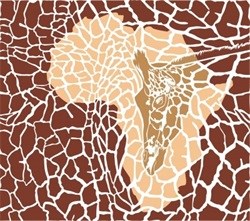
The forum will offer a platform for prominent African stakeholders to share key information and participate in more focused and in-depth discussions on issues relating to innovative financing mechanisms. The forum takes place every two years and is organised by the Economic Commission for Africa (ECA), Africa's most important policy think tank.
Since the late 1990s, many African economies have grown significantly, and a number of countries continue to benefit from accelerating growth rates. Between 1995 and 2012, the continent's gross domestic product (GDP) doubled in real terms, from $656bn to $1,369bn, while GDP per capita increased by 40%, from $917 to $1,265. Impressive as these figures are, a number of challenges continue to impede Africa's transformation, the key one being Africa is still dependent on overseas aid.
According to reports and ECA findings, Africa requires approximately $200bn annually to finance sustainable development, promote climate change adaptation and mitigation, and enhance economic resilience and competitiveness. Africa's infrastructure requirements alone are estimated at some $90bn per year. The costs of safeguarding Africa's natural resources, which continue to underpin most growth in the continent, are also increasing.
"For developing countries to access the funds they require, they must strive to mobilise additional financial resources, including by accessing financial markets, while developed countries must honour the financial commitments they have made in international forums," Carlos Lopes, executive secretary of the ECA, said. "The continent must embark on reforms to capture currently unexplored or poorly managed resources. This includes curtailing illicit financial flows and rather transforming those funds into a powerful tool for enhancing domestic resource mobilisation, as a way of furthering the continent's development."
The good news is the potential for Africa to raise substantially more domestic financial resources - and to finance its development from these resources - is huge. Concrete results are within reach, even within a short time frame, if the appropriate innovations and support are put in place.
Government tax revenue constitutes the most significant source of domestic resources for the implementation of development programmes on the continent and there is significant potential for scaling up returns. The lesson emerging from country experiences is that by focusing on expanding the tax base, improving tax administration and tapping relatively underutilised sources of taxation, African countries can increase tax revenue significantly.
Domestic tax revenues mobilised in Africa today are in excess of $520bn (2011 figures), compared to the $50bn received in aid. What's more, African central and reserve banks hold more than $400bn in international reserves and Africa's pension fund assets are growing at a staggering pace. The World Bank estimates that Africa's diaspora remittances soared to $40bn in 2012 and they have the potential to grow to $200bn over the next decade. Added to this is the potential that can be realised by addressing the losses to the continent through illicit financial flows.
For Africa to own its development, however, the continent needs to define a new robust threshold for domestic resource mobilisation that will enable the implementation of at least 70-80% of its development programmes and projects.